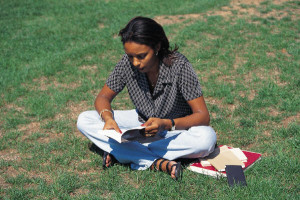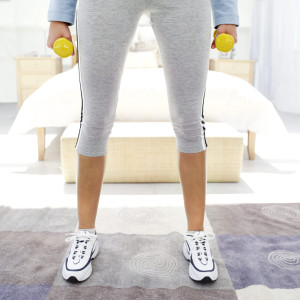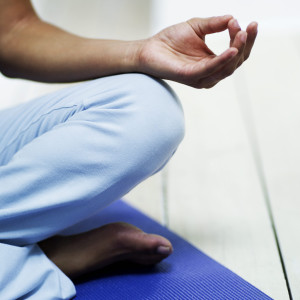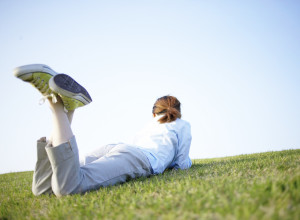A Guide to General Coping
- Coping Tips
- Strategy 1: Take up an activity that helps develop a calmer and more even emotional state of mind.
- Strategy 2: Keep a gratitude journal.
- Strategy 3: Keep a feeling good log.
- Strategy 4: Engage in a creative activity.
- Strategy 5: Read for relaxation and inspiration.
- Strategy 6: Exercise regularly.
- Strategy 7: Build a social network.
- Strategy 8: Regulating your body to regulate your mind.
- Strategy 9: Connect with nature.
In addition to providing strategies to deal with the urge to self-injure in the moment, and then strategies that help when you are having a bad day, or trying to cope with hard times we also provide strategies that center on enhancing your overall wellbeing. Please scroll down to check these out. Because there is a lot of research evidence that certain behaviors/activities can contribute long term to feeling better overall, physically, mentally, and emotionally. You will notice that many of these suggestions are mentioned in the above sections. However, here the emphasis is on the need to include these activities in your life as a prevention strategy to cope with the daily stress of life.
These “mindful activities” include Yoga, Tai Chi, and/or meditation.
Although this may be difficult to begin with if your emotions and mind are so anxious or busy, there is a lot of evidence that practicing an activity like this over time leads to better emotion regulation when faced with challenging life events and daily stress. It is best to do this through a formal class at your local community center, school, or other wellness center. However, even trying some simple yoga or meditation at home can be very helpful.
You can buy a DVD and follow that or you can check out some of the videos on the right of this page and use these to help walk you through some meditation exercises. We also have yoga videos, which you can try which include some very short and simple yoga stretches.
For instance, it may help to start with a simple relaxation exercise such as “Relax Your Body.” From here you can try some of the mediation exercises, including “Being Mindful,” “Learn to Meditate” or “Mindfulness.”
If you want to try yoga, you can check out “Yoga Exercise” on the right as well. With yoga it is always important to be careful and gentle if you have never done it before and if you have any medical mucsle or joint issues or are pregnant you should check with your doctor before trying yoga.
Keep a gratitude journal for yourself.
Here, you can enter at least one thing you are grateful for every day.
Although this can sometime be difficult when times are hard, by thinking of, and writing about, one thing for which you are grateful, you will enhance your overall feeling of well being.
 Similar to the gratitude journal, keeping a “feeling good log” and documenting and elaborating on times when you do feel good or something goes well has been found to be useful in two ways.
Similar to the gratitude journal, keeping a “feeling good log” and documenting and elaborating on times when you do feel good or something goes well has been found to be useful in two ways.
First, it forces us to stop and notice when something is going well and we feel good, and second, it is very helpful to have for review when everything seems like it is not going well.
Often we tend to focus on and think a lot about how badly things are going and can lose sight of the good times we may have had.
 Creative activity can be an outlet for intense emotions as noted above, but also a day to day engagement in a creative activity (singing, sketching, painting, writing, sculpting etc.) can help to enhance overall emotional well being.
Creative activity can be an outlet for intense emotions as noted above, but also a day to day engagement in a creative activity (singing, sketching, painting, writing, sculpting etc.) can help to enhance overall emotional well being.
Sometimes people avoid doing creative activities they enjoy because they feel they are “not good enough” at it. Creative expression should be seen as an essential activity for you, independent of how “good” you are at it.
Try putting aside the critical voice and just engaging in the activity for the purpose of expressing yourself.
 Although when having intense emotions or urges reading may not be possible, in day-to-day seeking out positive and inspirational reading can be beneficial if you like reading.
It can be helpful to have on hand some particularly comforting or inspiration material that you can re-read.
Although when having intense emotions or urges reading may not be possible, in day-to-day seeking out positive and inspirational reading can be beneficial if you like reading.
It can be helpful to have on hand some particularly comforting or inspiration material that you can re-read.
 As noted in our “coping with urges” and “coping day-to-day” sections, exercise is really central to all aspects of wellbeing.
As noted in our “coping with urges” and “coping day-to-day” sections, exercise is really central to all aspects of wellbeing.
This is because exercise has the potential to help regulate you emotionally, physically and mentally.
It is important to exercise at least 3 times a week, and include both some high intensity and some lower intensity, even regular walks can help with overall wellbeing.
There is increasing evidence that to have more balanced emotions and state of mind, a life
style that regulates our body is very important. Regulating the body will help to regulate the mind. Body regulation is helped by “SEE: Sleep, Eating, Exercise.”
Sleeping in a regulated way; that is sleeping at about the same time for about 8 hours a night (if possible), helps to regulate your body.
Similarly, eating regular meals and eating well can actually help to regulate body and mind. As discussed above, exercise is particularly important in helping to regulate your body. You cannot separate mind, emotions and body — if your body is poorly regulated it will be harder to regulate your emotions and mind.






